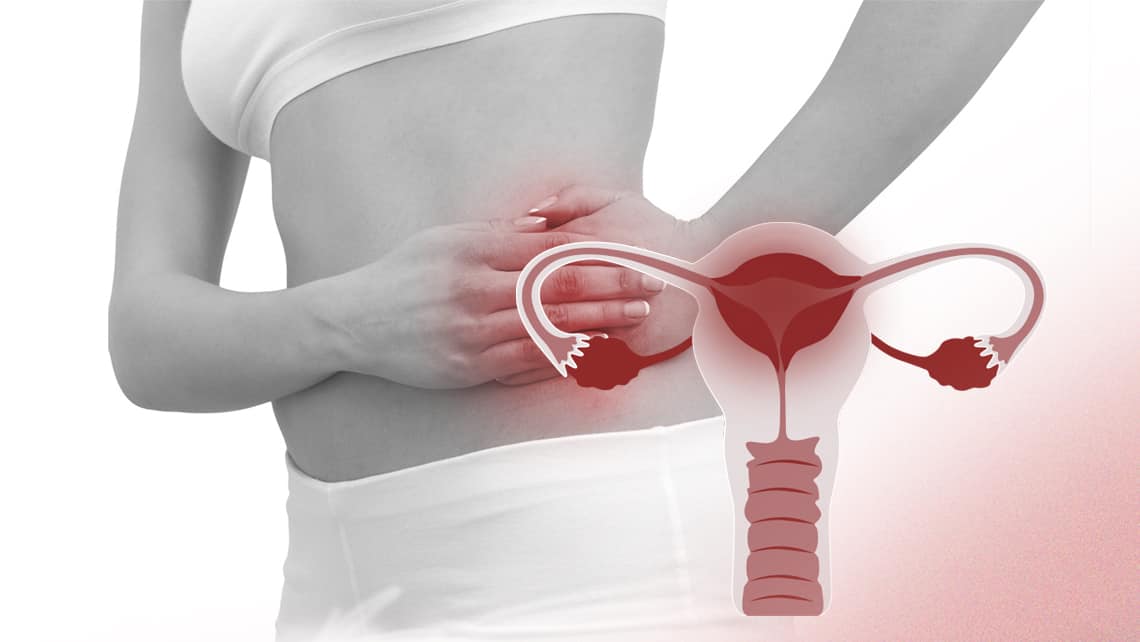Pelvic inflammation is a common but critical disease faced by women and can lead to severe complications if left untreated. However, early detection, diagnosis, and treatment can cure the disease and mitigate the possibilities of future complications.
Pelvic inflammatory disease is hard to diagnose as there are no obvious symptoms initially. But if you feel something that makes you suspicious about any such problem, it is always better to get diagnosed and treated as soon as possible. Let’s know how the disease is diagnosed and what treatment options are available to cure the disease.
How is Pelvic inflammatory disease (PID) diagnosed?
To diagnose pelvic inflammatory disease, your medical history and the symptoms you experienced are used since no single test can confirm PID.
You are asked about the symptoms, even if they are mild.
Your medical history is analyzed and evaluated that includes your sexual habits, any prior sexually transmitted infection, or any birth control methods used by you.
It is followed by a pelvic examination to check the tenderness and swelling in your reproductive organs and abnormal vaginal discharge.
The possibility of gonorrhea and Chlamydia infections is ascertained with the help of taking fluid samples from your vagina and cervix.
However it’s not always possible to detect PID through the testing of swab samples taken, therefore some other tests may also be carried out like:
⦁ A blood or urine test
⦁ A pregnancy test
⦁ A transvaginal ultrasound.
⦁ A laparoscopy
How is Pelvic Inflammatory disease treated?
As soon as you are diagnosed with pelvic inflammatory disease, the treatment begins at the moment. Depending on the underlying cause and complication, different ways are there to cure the disease.
Antibiotics
At first, pelvic inflammatory disease is treated with the help of antibiotics. The course of antibiotics treatment usually continues for around two weeks. It can be pills or solutions given through a drip in your vein (intravenously) or injections.
Hospital stay
You may need a hospital stay:
⦁ If antibiotics do not improve your health and cure the disease
⦁ If you are severely ill or pregnant
⦁ If you do not have a clear diagnosis
⦁ If there is a abscess in your fallopian tube, in this case, you may need surgery to treat PID.
Treatment of your partner:
If you have PID, your sexual partner needs to get treated to avoid any chances of reinfection. Your partner may have gonorrhea or chlamydia even if there are no symptoms of illness.
Till the treatment gets completed and the symptoms get resolved, it is best to avoid sexual intercourse to prevent any further problems.
How to prevent pelvic inflammatory disease?
To prevent pelvic inflammatory disease, you need to avoid sexually transmitted infections and:
⦁ Avoid unprotected sex and sex with multiple partners
⦁ Get tested timely for sexually transmitted infection
⦁ Use contraceptive methods to prevent PID
Never ignore or delay your treatment if you come to know about your pelvic inflammatory disease. Negligence to it can not only cause you money but the loss of health and can even risk your fertility. Take preventive measures to avoid it and take timely treatment to cure it.
Stay connected with us to gain more insights into your health.


Leave A Comment